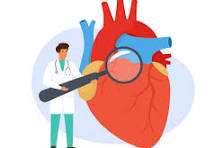Mon-Sat 9am-7pm











Doctors are medical professionals who treat patients in hospitals. Physicians diagnose a patient, and prescribes medicines and treatment for the disease, while surgeons perform operations. Allopathic medicine is one of the largest and most extensive fields of study and research with many different specialities.

NEET-UG is an entrance exam for selecting students for MBBS and BDS courses. This is a National-level common entrance test conducted by the Central Board of Secondary Education (CBSE). Applications : www.aipmt.nic.in.
Eligibility: 12th examination, minimum of 50% (General category) and 40% (Reserved category) in aggregate of Physics, Chemistry Biology /Biotechnology from a recognized board.
Exam Pattern:
Postgraduate Medical Course in broad specialties is of three years duration in the case of the degree course and two years in the case of Diploma courses after MBBS and in the case of super specialties, the duration is three years after MD/MS. There is a single eligibility cum entrance examination:-National Eligibility-cum-Entrance Test for admission to Postgraduate Medical Courses conducted by the Medical Council of India.
The National Board of Examinations is an autonomous organization under the Ministry of Health and Family Welfare. It conducts Postgraduate and Post Doctoral examinations in medicine and allied sciences and awards Diplomate of National Board in the concerned discipline. Candidates are selected through the CET test of NBE.
AIIMS
Maulana Azad Medical College
St John's Medical College
JIPMER
???????
Job Profile:
PHYSICIANS:
SURGEONS
Doctors also work in a number of non-clinical branches of study such as anatomy and physiology, biochemistry, microbiology which apply themselves to the study and research in various branches of medicine.
After completing the MBBS degree, every student wants to know how much they will earn. The salary of the MBBS degree holder depends upon how much knowledge & experience you have. The initial salary of a medical graduate doctor may be Rs. 20,000 to Rs. 35,000 per month. After getting the experience and good hands-on in this field, the candidate may get a handsome salary of 8 to 10 lakh per annum.
1 ABILITY TO HELP PEOPLE
The main duty of a Doctor is to examine patients and treat them. Thanks to the nature of their work, Doctors are capable of helping people directly (through treatment).
Helping people this way (directly) is very gratifying!
2 GAIN IMMENSE RESPECT IN THE SOCIETY
Doctors are revered and treated with respect in society. It is not uncommon to see Doctors earn a special status and place in society.
3 MONETARY BENEFITS
This career also provides monetary benefits along with work satisfaction and special status in society. It is not uncommon to see Doctors earning a huge salary at work setups like – government hospitals, private hospitals, and own clinics.
4 MULTIPLE JOB OPPORTUNITIES
Doctors have diverse job opportunities available in front of them. They may join work setups such as – government hospitals, private hospitals, clinics as well as NGOs. Self-employment is another opportunity available in front of them.
5 CAPABILITY TO UPLIFT THE SOCIETY
Using their knowledge, Doctors may work for the benefit of needy and backward areas/communities. They have the power and knowledge to uplift society.
:
1 LONG COURSE DURATION & HIGH FEES
Becoming a Doctor is not an easy task. MBBS is the minimum qualification required to practice medicine in India. MBBS course is 5.5 years long. After MBBS comes advanced courses like MD, MS, and super specialty courses.
Completing the above set of courses can take a long time (7-8 years).
Private Medical Colleges are very expensive. Government Medical Colleges don’t charge hefty fees. But thanks to fierce competition, it is very difficult to get into Government Medical Colleges.
2 CONTINUING EDUCATION IS NECESSARY
In the above point, I mentioned that it usually takes 7-8 years to finish MBBS and MD/MS. Technically, a Doctor is a student for life! He/she has to keep herself up-to-date with the latest developments taking place in the healthcare sector.
Each passing day brings with it advanced medical technology. In short, one must continue education (learning) even after completing the academic program.
3 LONG WORKING HOURS
It is not uncommon to see Doctors working for long hours. Many Doctors go through extremely busy and hectic schedules. Marathon surgery sessions, midnight emergency calls, community work – such activities keep Doctors busy for long hours.
4 RESPONSIBILITIES
Patients’ life and safety rest in Doctors' hands! It is a huge responsibility. Eye for detail and concentration are things a Doctor should have. There is no room for error when it comes to this profession (depending upon the specialty/specialization).
5 STRESS AND BURNOUT (STRESSFUL LIFESTYLE)
Points 3 and 4 combine to create a lot of stress in Doctors’ lives. This often leads to burnout and tiredness. It is not uncommon to see Doctors having bad social and family life (due to their stressful work schedules).
Call us at +91 9205084085, Monday - Friday, 9 am - 7 pm


